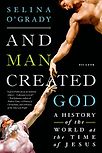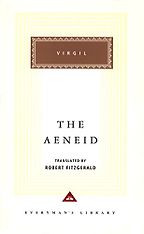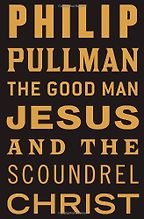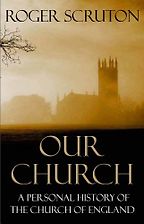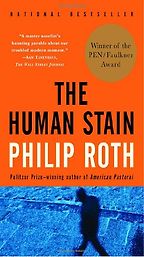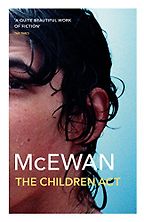You’ve chosen as your topic the role of religion. I know you’re formerly Catholic but now an atheist. I don’t believe in God either. Once you accept that God doesn’t exist, it does feel a bit like one is living in a world where a lot of other people believe in the tooth fairy. It is just very odd that there are so many people who are living with these beliefs. But religion clearly has enormous power, so there’s more to it than that?
That’s my feeling. The beliefs I can’t believe anymore, but, especially having been a Catholic, I absolutely understand the importance religion has in people’s lives. This is what I feel the New Atheists fail to explain. You can’t just dismiss these ideas, it’s not really the ideas that are important, it’s what religion does. That’s why religion is still so important in people’s lives, because it does something that nothing else does quite as well: it creates meaning, it creates a community. Football can try to do this, the monarchy tries to do it, politicians try to do it. But still, nothing can do it quite as well as religion. The beliefs may seem silly, but it’s not the beliefs that make it important, it’s that community-making. Which of course Durkheim, one of the great founders of the sociology of religion, spotted.
Varieties of different cultures around the world have come up with religion, haven’t they? It’s not something that’s just come from the West, or come from the Middle East and spread outwards, it has sprung up everywhere, hasn’t it?
Yes, and it’s been there from the start of any known community that history has left us records of. There has always been a place for religion, and it has been a central place. From the start, every ruler has ruled their state with the use of God. They are either divine themselves, or they’re in touch with the divine.
Now I love the fact that you have not in fact chosen books by Durkheim — or indeed anyone like that — to make your points, but almost entirely novels or works of fiction. You’ve started with Virgil’s Aeneid. Can you also tell us a bit about it for people who haven’t read it? Which I suppose is most people…
I so recommend it. There’s a wonderful translation by Robert Fitzgerald. To me, it is the greatest founding myth that a nation has ever been blessed with. He was writing at the birth of what really is the Roman Empire: it’s when Augustus comes to power and has just beaten Mark Antony for control. Up to then, it has been a rather chaotic triumvirate. Augustus comes along and becomes the sole ruler. But because this is the end of the Republic, he needs to justify this new arrangement. He creates, through Virgil, this fantastic myth.
“Religion is still so important in people’s lives because it does something that nothing else does quite as well.”
Anyone who knows the Iliad and Odyssey will know the wonderful story of the defeat of Troy. Aeneas is the Moses-type figure who leads his people from Troy, through many adventures on the way, to Italy, and founds a state there. This is the story of the founding of that state of Rome and it’s an extraordinarily moral story. Virgil constantly calls Aeneas “duty-bound” and his mission, as he knows, is to bring “the whole world under law’s dominion.” Rome is like — and it’s a cliché to say it — an ancient American Empire. America too, through the neo-cons, very much sees its role as a moralizing role, as bringing huge benefits of law and order and democracy to the world. Virgil gives Rome that same function. To some extent Rome did bring law and order to every region that it conquered and this is Virgil’s role, to cry up that. He’s a wonderful propagandist and exaggerates. For instance, the battle of Actium, which ends the war with Mark Antony, was in real life a rather shoddy affair. It was a civil war and civil wars are quite nasty and people change sides. Virgil portrays Augustus as the wonderful general behind this battle, but actually it was his second in command, Agrippa. there were very few deaths and it was not a very notable battle. But nonetheless, through Virgil’s eyes, it becomes the moment when the Roman Gods defeat the Egyptian Gods, when “monster forms of Gods of every race, from the dog God Anubis barking, were defeated by our Neptune, Venus and Minerva and Mars engraved in steel.” These are the great Roman virtues beating the decadent east of Cleopatra and Mark Antony.
Also, not a Christian God, but a pagan, polytheistic religion playing the same role.
Absolutely right. I think what’s also fascinating about the Aeneid is that it’s an epic that shows Rome on the cusp between Christian virtues and warrior virtues. Aeneas is both the self-denying Christian man, and the self-assertive warrior man. The greatest moment in the Aeneid is at the end, when he is forced to choose between the Christian virtues of mercy and compassion and the old warrior virtues of vengeance and fighting and being strong and showing no mercy, which would have been a terrible sign of weakness for Romans. The confrontation is between a pagan king and this founder of Rome, Aeneas. Aeneas in fact, as it ends, as we know it, shows no mercy. He reverts to his old warrior virtues. But it’s an incredibly moving moment and I think a lot of scholars aren’t sure whether this was the ending that he really intended, because he died before he could revise it. The emperor Augustus preserved the manuscript against his wishes.
But at this point Christianity doesn’t exist yet, it’s before Christ.
Virgil died in 19BC. It’s at the point when those kind of Christian virtues are coming in, even before Christ. The great cult Isis — which should really have won the battle of world religion against Christianity — is beginning to show those kind of loving virtues.
I’m definitely going to read the Aeneid now.
It’s very beautiful and moving. The other thing is that for me, Turnus, the pagan warrior, is a far more interesting and sympathetic character than Aeneas the noble, duty-bound, denying his love of Dido. He’s a much more attractive character and you want him to survive at the end, but he doesn’t.
I know with your book choices that you’re focusing very much on the community- building aspect, but in terms of individual reasons for believing in God: one of the famous quotations from the Aeneid is when he leaves his lover Dido and says, “I sail for Italy, not of my own free will…” Isn’t that touching on one of the other reasons for religion’s popularity: we like the idea that someone else in charge?
There’s always that tussle in Christianity, between free will versus God determining. I think in most religions that’s a problem — how do you reconcile those two things? Islam has the same problem. In a sense it’s wonderfully acute in Christianity, because the whole thing with Adam and Eve gets going by the assertion of Adam and Eve’s will against God’s. It’s always that tussle between authority and fate versus taking command of your own life. And that’s there from the very start of Judaism and Christianity…
Your second book, which again, I haven’t read but now want to, having read reviews about it, is Philip Pullman’s The Good Man Jesus and the Scoundrel Christ. How does this novel fit in?
I’m addressing all these books to the New Atheists. This again shows their failure to understand that they’re too simplistic when they say how appalling religion is. The book is about the struggle between the ideals of a religion and its actuality. The good man Jesus and the scoundrel Christ are in fact twins: Mary gives birth to twins. Jesus is the good man who believes in the non-institutionalism of religion, who says that my religion is a religion of love, there will be no institutions, no insiders and no outsiders, no money, no authority. His brother is the scoundrel Christ who, to me, is modeled very much on St Paul. He is not a bad man. He is persuaded by a stranger to write down the story of Jesus, his words and actions. And he is persuaded that the only way that such ideals can survive is through an institution. And he’s absolutely right. How would this tiny little cult — when Jesus died he probably had 100 followers — have spread over the world had it not had an institution? So the scoundrel Christ is put in the position of distorting everything that Jesus says, including the fact that he’s resurrected. Christ, in fact, pretends he is Jesus, because they’re twins and he can get away with it. The book ends with Christ lamenting the fact that “without the story there would be no church and without the church, Jesus will be forgotten.” Pullman is very anti organized religion as we know from His Dark Materials books. But he understands this terrible dilemma that a religion is put in — it has great ideals but, in order for them to be spread, they have to be corrupted. That’s what Christ’s/St. Paul’s role is, to create the organization that will carry it on…
In terms of the role of religion, what we’re talking about here is religion as a way of wielding power, is that right? It’s constantly being manipulated or used in power struggles for cynical ends.
State power and religious power absolutely go hand in hand. Augustus, as we know from Virgil, certainly would see himself, and portrayed himself in statues, as a demi-God or a God. No state can do without that mantle of religion. Look at Obama. There’s not a United States president who could dare say they were not religious.
They need that authority. Democracy is not enough.
They need the divine hand of God to say, “Look what a good man this is! And what a powerful man!” It’s so much easier to coerce people without force, to make them want to love you and obey you and admire you because God has said you should. It’s so much better — and cheaper — than doing it by force.
Do we need to add anything about the book? So it’s this wonderful reimagining of Jesus’s life with this twin brought in…
Christ is absolutely wonderful. Christ in the book becomes the Devil. He is Judas who kisses Jesus and betrays him, he is the Devil that goes into the wilderness and tempts Jesus. It’s a wonderfully sympathetic portrayal of what happens to religion.
Get the weekly Five Books newsletter
The other thing is that Christ rewrites a lot of what happens. He’s not lying — as he would say he is “clarifying.” The feeding of the 5000, as Pullman writes it, is just people who are moved by sudden love and charity to stop being greedy and share their food. The food isn’t miraculously created. The stranger who persuades him to write all this down says to Christ, ‘It’s just that sometimes things are too complicated for ordinary people to understand. So just simplify it. We must be prepared to make history serve the future.’ In a sense, this is the problem for Islam. How much can you interpret the Koran and how much do you just say, “this is the word of God and just accept it as it is.” The modernists say, “Of course you must interpret!” and the traditionalists/fundamentalists say, “No, this is the word of God and we cannot, in any way, interpret it, because that would be to falsify it.” So this book has huge resonances, not just for Christianity, but for what you do with scripture.
I saw a review of the book by the historian of Christianity Diarmaid MacCulloch. He says Pullman really knows his stuff in terms of the Bible.
I think that’s right. I think the way he has modeled it on St. Paul is brilliant. Because St. Paul, to me, is the person who creates Christianity, not Jesus. He is the most brilliant marketer any religion has ever had. And he does that by organization. And theology: he turns Jesus into a divine figure, rather than a human one.
Your third choice is not a novel, but the British philosopher Roger Scruton’s Our Church: A Personal History of the Church of England.
I thought this was a balance between the left wing view of religion — which is Pullman’s — and Scruton’s, which is the right wing. Also, it explains how someone who, in my opinion, does not believe in the articles of faith does believe in religion as a community builder. I think that’s what’s left for a lot of people. You become part of a religion for its values of community rather than for transubstantiation or resurrection. Scruton shows, with this book — which Diarmaid MacCulloch has criticized for its inaccuracies, but I don’t think the inaccuracies matter — what it means for an intelligent conservative to still believe in God, and why it makes sense to.
So he does believe in God then?
He says the English have been formed by the Church of England, and they know, in their hearts, that faith is in large part a human invention. The book is a wonderful celebration of the culture that was fostered and created by the Church of England — and it takes you through its architecture, the literature it has created, and the music that it has created in its hymns. He feels that that is what is so wonderful about an establishment church. Despite its venality — perhaps because of its venality, and its inter-weavedness with the state — it creates a sense of a community, with a shared history and shared meanings. Like a good Tory conservative he is a nostalgic. He believes the Church of England created something that we’re now losing, which is a joint set of values. He says that when you go into a parish church, there are monuments to the local gentry, to the ordinary men of the parish who died in the wars, and it takes you back to the Anglo Saxons, to the iconoclasts of the 17th century or the 19th century Gothic Revival. It takes you through the whole of English history and makes you feel a part of it. But now that community of shared values has gone. I don’t know if in fact it ever existed. It was fine for the local gentry to feel they were being celebrated and shared a history, but whether the ordinary men who died in the wars, whether their families would have felt they were also part of this whole, I just don’t know.
Also, English Catholics were treated pretty brutally.
He says the Church of England is the 17th century compromise, this magnificent compromise between Catholics and Protestants. It created and fostered this lukewarm and embarrassed relationship with God, that the English had. He says that we’re as embarrassed talking about religion as we are at talking about sex. That’s probably right. It obviously didn’t work that well — as a lot of Christians went off to America — but that’s his vision of what a church can do. It’s still how he sees a church working in society.
I have a lot of sympathy for his romantic notions about village churches. I had my children christened in an Anglican church in the countryside near my mother-in-law. That atmosphere is just wonderful.
Yes, Roger captures that terribly well. And funnily enough, even as celebrated a neo-atheist as Christopher Hitchens, admitted exactly the same feelings. You can’t help but being moved by the smell of it, the feel of it and the dust of it, and the past, when you go into a parish church. The same with Philip Larkin, that fabulous poem, Church Going, where an atheist goes into a local parish church and just feels this sense of meaning…
Is it unique to Britain, that sense of shared history created by its churches? I don’t get a sense of it in some other countries, maybe…
That’s a good point. I was just thinking of Italy. When you go into a church there do you feel that? I think that’s a difference, perhaps, between the established church and the non-established churches. The established church is so much a part of the state, that inevitably it is part of the nation, of nation-building, in a way that perhaps non-established churches aren’t.
Roger Scruton is also quite good at talking about the banality of the church as it’s portrayed in Jane Austen and Trollope. These people who went into the church because they were in the unfortunate situation of being the third son rather than the first. They had to do something, so they went into the church — and they’re fat and greedy and slightly stupid… But he’s very affectionate about it, and of course that’s the nature of an established church, it is going to be venal. But it is part of life and it does create a nation.
Tell me about your next choice, The Human Stain, by Philip Roth.
I think this is one of the great novels of all time. Scruton shows what religion does in terms of building a group. Roth shows the absolute dangers of the creation of groups. It’s about the tragedy of assimilation. When you create a group, of course you create an out-group and the out-group can react in many different ways. But one of them, as we know all too well, is the desire to become part of the in-group in some way. This book is about a black man who passes himself off as white, because he is very light-skinned. (Of course you can’t help thinking it’s actually a story about Jewish assimilation to the dominant majority rather than black assimilation, but it doesn’t really matter). It’s about a black man who cuts off his roots with his family. There’s this most moving passage where he talks to his mother and she realizes and she says to him, ‘You want to cut me off and pass off as white. I’ll even work as your cleaner just so I can see you and your children.’ But he won’t have that. He cuts himself off completely. It could just as well be a Jew who is doing the same thing, and he talks about the Jews as Indian scouts who show the way to assimilate for the black people in America. The book is about the violence that you do to yourself, and to your identity, when you try and imitate the in-group, the majority. Coleman Silk, who is the hero/anti-hero of this story never admits to the fact he is black. And yet he is hounded out of his university for allegedly making a racist insult to two black students. He calls them “spooks.” What he means is that they’re a ghostly presence because they never turn up at his lectures. He doesn’t mean they’re spooks in the racist sense.
“Stupid though its beliefs might be, religion does give us a meaning, which we so desperately need.”
The wonderful analogy in this book is to this caged crow who escapes from his cage and is then virtually pecked to death by his fellow crows, the free ones. The onlooker explains this by saying that this is a crow that doesn’t know how to be a crow. The crow has learned its own caw by aping humans, the children who imitated it. In trying to assimilate to the humans it has lost all identity and it is loathed. You can’t live without a group, is what Roth is saying. The group is so dangerous, because you want to belong to the majority group. You cannot but belong to a group, and you cannot wash out the human stain, which is both the stain of your own race, but also the stain of existence, that you leave a stain on the world. You can’t not do that. That’s our tragedy. It’s simply a wonderful book about the desire to be free of all groups, the inevitability of having to belong to a group, and the tragedy of trying to belong to a group of which you aren’t really a part — and never will be.
How does that fit into the overall theme?
It’s just because this is what religion does so well. This is, in a sense, its danger, which the New Atheists are right to point out — how viciously it can create an in-group and an out-group. Christians have done that with the Jews, and similarly whites do that with blacks.
As human beings, we like creating in-groups and out-groups and religion is a handy way of doing it?
We cannot but do it, I think. Religion has been, in the past, certainly the best way. It’s religion and race that are the two absolute in-group out-group supremos.
Your final pick is a novel by Ian McEwan, The Children Act.
Ian McEwan is the subtlest of the New Athiests. Most of his novels show that we, as humans, just as we need to live in groups, have a desperate desire to make meaning. Many neo-atheists fail to understand that religion is quite a good way of doing this. Stupid though its beliefs might be, nonetheless it does give us a meaning, which we so desperately need. What’s interesting about The Children Act is that McEwan poses two different ways of making meaning. One is the religious way, and the other is the anti-heroine’s way. She is a high court judge and her way of making meaning is through culture, through playing Bach, through reading, through her beautiful flat with its lovely walnut tables etc. But it’s also through love. As a family court judge, she has to deal with a lot of cases brought up by the opposition between religious fundamentalists and the English secular state. So she has to deal with a case of an orthodox Jewish husband who wants his daughters to be brought up religiously and his wife, who wants them to go to a secular school where they will learn to be lawyers or teachers. Then she has a case of a Catholic family who have Siamese twins and are prepared to let them both die, because if an operation is done, you will deliberately be killing one of them, which is against their faith. She has quite a few cases like that. The case that is at the heart of this book is of a 17-year old boy who is a Jehovah’s Witness, as his parents are. He has leukemia and will die unless he gets a blood transfusion. But Jehovah’s Witnesses do not allow this. You’d think that given McEwan is a New Atheist, this would be a story which is totally unsympathetic to such fundamentalism, but, on the contrary, he is able to show that this, also, is a way of living together and of finding meaning. The lives of the parents of this boy were falling to bits before they discovered this particular religion. The father was drinking too much, he was abusive to his wife, he’d lost his job and so on. Then these two polite young men from America knock on the door and the parents discover a community and a meaning and the father starts running a business. This religion has done them a lot of good, despite the fact that they are actually prepared to let their son die. And the wonderful thing is that the high court judge rules against them, and they are so happy, because they had to follow the beliefs of their religion and yet, of course, they wanted their son to live. She allows them to get out of that dilemma.
What McEwan is saying there is that the beliefs are immaterial to the fact that they’ve found a community in what they are doing and they can’t leave it. And the tragedy of the book is that she temporarily converts the boy to her belief that it’s through culture, through playing Bach, that you find your meaning. The boy agrees to that, and goes to visit her afterwards and says look “I’m playing the violin! I’m acting in a play!” But she, the God who separated him from his old community, let’s him down. She can’t provide the love and the community that he needs. He, as a result of being let down by her, returns to his old religion and dies, because his leukemia comes back and he refuses to get a blood transfusion. It’s fascinating because McEwan is still clearly on the side of culture, but he recognizes that it’s a very middle-class, elite culture, and not everyone is going to be able to join it. The boy can, because he is a wonderful poet etc. The parents probably couldn’t. They haven’t had access to that way of creating meaning. So he does understand there is an alternative way — not a way for him and not a way for the high court judge — but it is a way, and the cultural way of meaning could well let you down. The other wonderful thing about the book is that it ends with her turning to her husband — who briefly left her — and feeling that this isn’t the greatest marriage in the world, but it’s love that will unite us and get us through. It’s a terribly moving and sympathetic book.
So religion is about creating meaning, and building groups. When I interviewed Susan Jacoby, an American atheist, about her atheism, she said that in her view, the main reason for the survival of religion was fear of death. Do you agree?
I really don’t think that’s true. It’s only on our deathbeds that we get frightened about death. Until very late, including middle age, we’re not frightened of death. We just don’t think it’s going to happen to us. Early religions didn’t really bother very much about the after-life. In Judaism, for instance, it’s only quite late on in its life, at the time of Jesus, that the after-life starts coming into it. And if you look at pagan religions, it is often just not there. They’re worried about how to live in this life, and how their dead ancestors will influence their life, but they’re not very worried about the afterlife.
What about Karen Armstrong’s feeling that religion is about dealing with the pain and suffering we see in the world?
Again, it’s only with the monotheistic religions that you get gods that are worried about you. With the pagan gods, it was simply a quid pro quo. You gave them a good sacrifice and with any luck they will cure your baldness or you fertility problems. There was no compassion involved and no good behavior required…It’s only with the monotheisms that there are sympathetic Gods, and even then I’m not sure how sympathetic Yahweh and Allah are…
Interview by Sophie Roell, Editor
April 2, 2015. Updated: May 22, 2024
Five Books aims to keep its book recommendations and interviews up to date. If you are the interviewee and would like to update your choice of books (or even just what you say about them) please email us at [email protected]
Five Books interviews are expensive to produce. If you've enjoyed this interview, please support us by donating a small amount.

